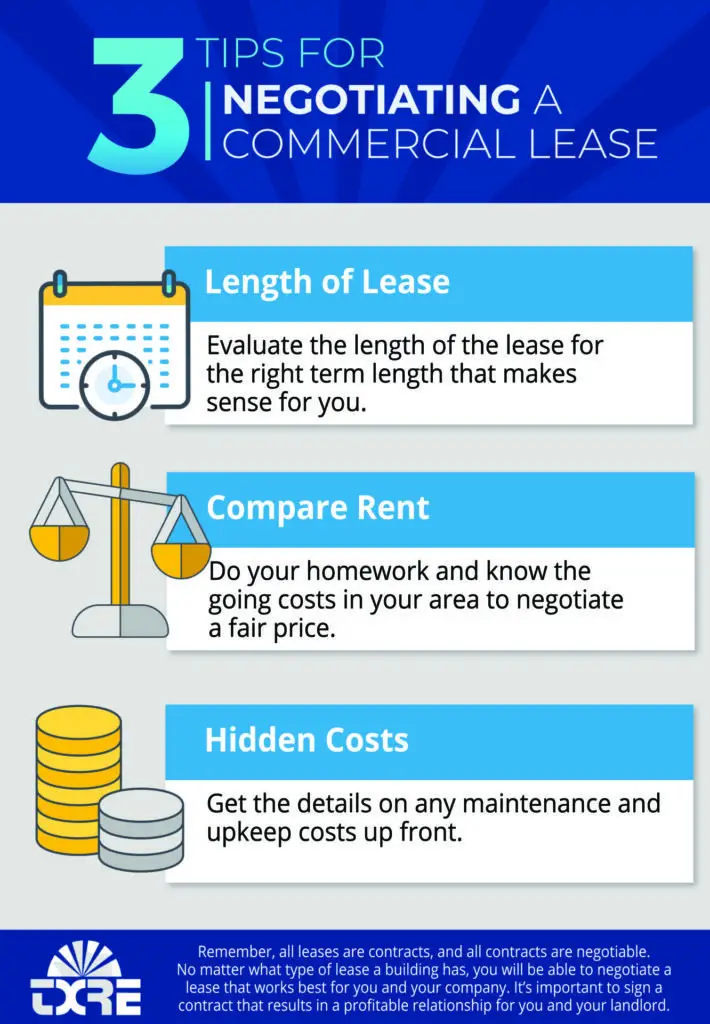Are you about to embark on negotiating a commercial lease agreement? Look no further! In this blog article, we will guide you through the ins and outs of negotiating a successful agreement that works for both parties. Whether you’re a business owner seeking the perfect space or a landlord looking to secure a reliable tenant, understanding how to negotiate a commercial lease agreement is crucial. From identifying your needs to determining fair terms and conditions, we’ve got you covered. So, let’s dive right in and explore the key steps to a fruitful negotiation process.
How to Negotiate a Commercial Lease Agreement
Introduction
Negotiating a commercial lease agreement is a critical step for any business owner. Whether you’re opening a new store, relocating your office, or expanding your business, a well-negotiated lease can provide stability and flexibility for your operations. This comprehensive guide will walk you through the key aspects of negotiating a commercial lease agreement, empowering you to secure the best terms and protect your interests.
Understanding Your Needs and Goals
Before starting negotiations, it’s essential to clearly define your needs and goals. Take the time to evaluate your business requirements and consider factors such as:
- The size and layout of space you require
- Location and accessibility
- Financial constraints and budget
- Desired lease term and renewal options
- Any specific amenities or infrastructure necessary for your business
Clearly outlining your needs will help you prioritize what’s most important during negotiations and provide a solid foundation for productive discussions.
Researching the Market and Identifying Potential Spaces
To negotiate effectively, you need to be well-informed about the current market conditions and available spaces in your desired area. Conduct thorough research on:
- Commercial real estate trends in the location
- Average rental rates for similar properties
- Comparable lease terms and conditions
- Types of spaces available (retail, office, industrial, etc.)
This information will give you a better understanding of what to expect and enable you to negotiate from a position of knowledge and confidence. Use online platforms, real estate agents, and networking to identify potential spaces that align with your requirements.
Engaging with Landlords and Brokers
Once you have shortlisted potential spaces, it’s time to engage with landlords or their representatives. Here are some key tips for effective communication:
- Develop a professional and respectful approach
- Prepare a brief introduction about your business
- Express your interest in the property and inquire about availability
- Ask for a property tour to assess the physical condition
- Request the lease agreement and any additional documents for review
Engaging with landlords or brokers in a professional manner will set the stage for negotiations and help establish a mutually beneficial relationship.
Evaluating the Lease Agreement
Before diving into negotiations, thoroughly evaluate the lease agreement provided by the landlord. Here are some key aspects to focus on:
Lease Term and Renewal Options
Consider the length of the lease term and evaluate whether it aligns with your business plans. Additionally, examine the renewal options available to you. Having the flexibility to extend the lease can be advantageous, especially if your business is growing steadily.
Rent and Additional Costs
Review the rent structure, including the base rent amount and any potential increases over the lease term. Take note of additional costs such as common area maintenance (CAM) charges, property taxes, insurance, and utilities. Ensure that these costs are reasonable and clearly defined.
Use and Space Restrictions
Carefully analyze any use restrictions outlined in the agreement. Ensure that your business activities are permitted and that the allocated space meets your specific requirements. Watch out for exclusivity clauses that might limit competition from similar businesses in the vicinity.
Maintenance and Repairs
Understand your responsibilities regarding maintenance and repairs. Determine who is responsible for what and ensure that the agreement clearly outlines the landlord’s obligations to maintain the property in good condition.
Termination and Assignment
Review the termination clauses and understand the circumstances under which either party can end the lease agreement. Additionally, evaluate the assignment provisions if you anticipate the need to sublease or transfer your lease in the future.
Negotiating Key Lease Terms
Armed with a thorough understanding of the lease agreement, it’s time to negotiate the key terms. Here are some strategies to employ during negotiations:
Seek Professional Advice
Consider consulting a real estate attorney or an experienced commercial broker who can provide you with valuable insights and guidance throughout the negotiation process. Their expertise can help you identify potential pitfalls and negotiate favorable terms.
Emphasize Your Value as a Tenant
Highlight your business’s strengths and emphasize why you would be an ideal tenant. If you have a strong credit history, a proven track record, or a unique offering, make sure to mention these during negotiations. Landlords may be more inclined to offer concessions if they perceive you as a desirable tenant.
Propose Win-Win Solutions
Approach negotiations with a collaborative mindset. Instead of adopting an adversarial approach, seek mutually beneficial solutions. For example, you could propose a longer lease term in exchange for lower rent or request improvements to the space as part of the lease agreement.
Document Everything
During negotiations, ensure that all agreed-upon terms and changes are clearly documented in writing. This will help avoid misunderstandings and provide a solid foundation for the final lease agreement.
Finalizing the Lease Agreement
After reaching an agreement on the key terms, it’s time to formalize the lease agreement. Consider the following steps:
- Review the final lease document carefully and ensure that all negotiated terms are accurately reflected.
- Seek legal advice to ensure that the lease agreement protects your interests and complies with all applicable laws and regulations.
- Sign the lease agreement and have it signed by the landlord or their authorized representative.
- Keep a copy of the signed lease agreement in a safe and easily accessible place.
Negotiating a commercial lease agreement requires careful preparation, research, and effective communication. By understanding your needs, evaluating the lease agreement, and employing strategic negotiation techniques, you can secure a lease that benefits your business. Remember, seek professional advice when needed and thoroughly review all terms before finalizing the agreement. With the right approach, a well-negotiated lease can provide the foundation for your business’s success.
How to Negotiate Commercial Leases That Favor Tenants | Commercial lease negotiation tips
Frequently Asked Questions
FAQs: How to Negotiate a Commercial Lease Agreement
What are the key factors to consider before negotiating a commercial lease agreement?
Prior to negotiating a commercial lease agreement, it is essential to evaluate factors such as the location, lease term, rental rates, additional costs, maintenance responsibilities, and any potential restrictions or limitations imposed by the landlord. Understanding these aspects will help you make informed decisions during the negotiation process.
How can I determine a reasonable rental rate when negotiating a commercial lease agreement?
Researching the current market rates for similar commercial properties in the area can provide you with a good idea of what constitutes a reasonable rental rate. Additionally, consider factors such as the condition of the property, its location, and any additional amenities or services offered by the landlord that may affect the overall value.
What are common negotiation points in a commercial lease agreement?
Some common negotiation points in a commercial lease agreement include rental rates, lease term, options for renewal or termination, maintenance and repair responsibilities, allocation of common area costs, signage rights, and potential improvements or modifications to the property.
How can I negotiate favorable lease terms for my business?
To negotiate favorable lease terms, it is crucial to thoroughly understand your business’s needs and goals. This includes identifying any special requirements or unique circumstances that may impact your operations. Communicating these needs to the landlord during the negotiation process can help ensure that the lease terms align with your business objectives.
Should I hire a lawyer when negotiating a commercial lease agreement?
While it is not mandatory, hiring a lawyer who specializes in commercial real estate can provide valuable guidance and protect your interests during the negotiation process. They can review the lease agreement, identify any potential pitfalls, and suggest necessary amendments to protect your rights as a tenant.
What should I consider when negotiating the lease term?
When negotiating the lease term, consider the long-term goals of your business. If you anticipate growth or changes in the future, it may be beneficial to negotiate a longer lease term or incorporate options for renewal or expansion. Conversely, if you are unsure about the future, a shorter lease term with more flexibility might be preferable.
Are there any potential hidden costs I should be aware of when negotiating a commercial lease agreement?
Yes, there can be hidden costs associated with a commercial lease agreement. It is important to carefully review the lease agreement and inquire about any additional costs beyond the base rent. Common hidden costs include property maintenance fees, property tax increases, insurance premiums, utilities, and common area maintenance expenses.
How can I negotiate a fair allocation of maintenance and repair responsibilities?
To negotiate a fair allocation of maintenance and repair responsibilities, clearly define the scope of each party’s responsibilities in the lease agreement. Consider factors such as property size, type of repairs, and the impact these responsibilities may have on your business. Strive for a balanced allocation that accommodates the needs of both parties.
Final Thoughts
Negotiating a commercial lease agreement can be a complex process, but with the right approach, it can also be a rewarding one. Start by thoroughly understanding your needs and priorities, and clearly communicate them to the landlord. Research the market to gather information about comparable properties and lease terms. Always negotiate from a position of strength, highlighting your strengths as a tenant. Consider seeking professional help, such as engaging a lawyer or a real estate agent, to guide you through the negotiation process. Remember to carefully review and understand all terms and conditions before signing any agreement. By following these steps, you can confidently navigate the negotiation process and secure a favorable commercial lease agreement. So, when it comes to how to negotiate a commercial lease agreement, these strategies will help you achieve success.



